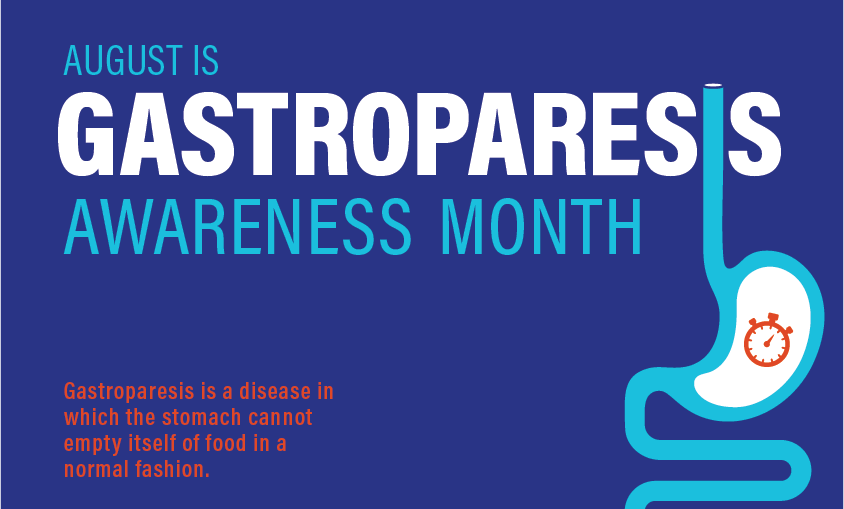August is Gastroparesis Awareness Month, which is dedicated to improving understanding and management of the disease.

A registered dietician can help you understand and meet your diet and nutrition needs.
Note: Health experts suggest that you talk to your doctor before you start or change any regimen including diet, medications or exercises.
References
Diabetes and Digestion | Diabetes | CDC – CDC (2022) What Is Gastroparesis?
What is Gastroparesis (2023). Retrieved from https://www.dropbox.com/scl/fi/vhgp895qd2idmm9rmkdxh/Gastroparesis-Awareness-Month-2023-Media-Toolkit_pdf.pdf?dl=0&rlkey=gz1nrzhckrzf85j2c6pc5853l
Mayo Clinic (2022). Gastroparesis. Retrieved from https://www.mayoclinic.org/diseases-conditions/gastroparesis/symptoms-causes/syc-20355787

